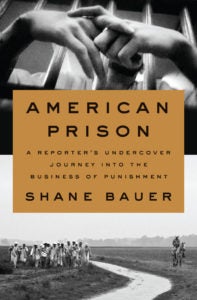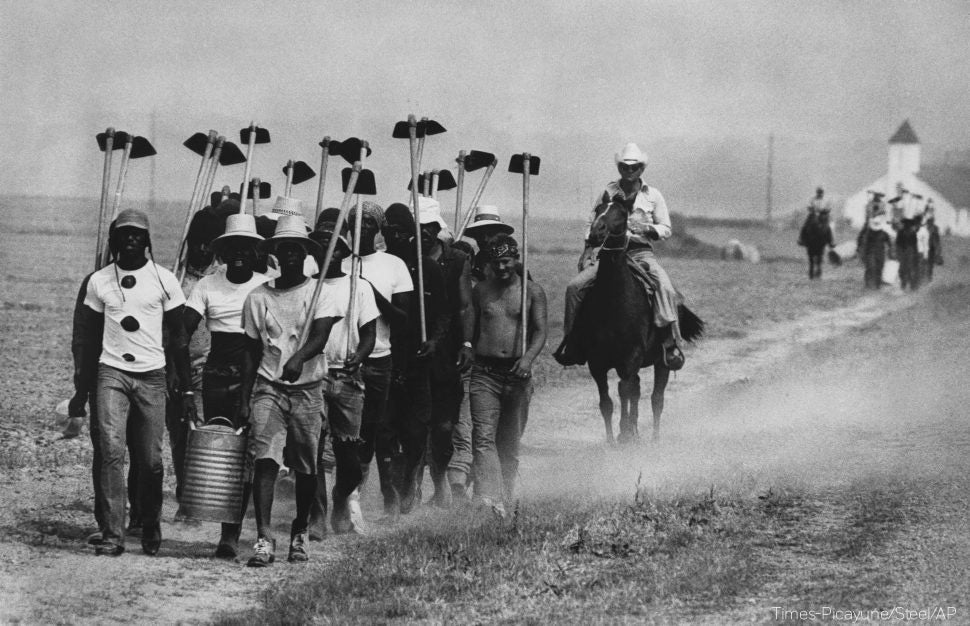
In 2014, investigative journalist Shane Bauer took an entry-level, $9/hour job as a guard at Winn Correctional Facility, a private prison in rural Louisiana. For the next four months, he reported for work outfitted with a hidden recording device, ready to capture the reality of life in private prisons for guards and inmates alike.
For Bauer, the issue is personal—while hiking in Afghanistan, he mistakenly wandered into Iran and was imprisoned there for over two years. After his release, Bauer originally planned to return to the Middle East to report on the Arab Spring, but hunger strikes protesting prolonged solitary confinements in California prisons drew his attention. Having spent most of his own imprisonment in solitude, Bauer’s interest was piqued. As he began investigations, he realized access to prisons was nearly impossible for journalists; he decided to go undercover.
In American Prison, Bauer recounts his experiences at Winn, and also gives a thoroughly researched history of for-profit prisons in America from their origins in the decades before the Civil War. As he soon realized, we can’t understand the cruelty of our current system without understanding where it came from. Private prisons became entrenched in the South as part of a systemic effort to keep the African-American labor force in place in the aftermath of slavery, and the echoes of these shameful origins are with us still.
“The notion that prisons were founded on—that they were meant to rehabilitate people—was a very short-lived experiment…. [W]hat are we getting out of warehousing people for years that eventually come back into society and have a very hard time functioning?”
Shane Bauer to NPR
The private prison system Bauer describes is deliberately unaccountable to public scrutiny. Private prisons are not incentivized to tend to the health of their inmates, or to feed them well, or to attract and retain a highly-trained prison staff. Though Bauer befriends some of his colleagues and sympathizes with their plight, the chronic dysfunction of their lives only adds to the prison’s sense of chaos. To his horror, Bauer finds himself becoming crueler and more aggressive the longer he works in the prison, and he is far from alone.
A blistering indictment of the private prison system, and the powerful forces that drive it, American Prison is a necessary human document about the reality of justice in America.
“[This] survey of profit-driven incarceration begins in the mid-19th century and strikes a familiar theme, that mass incarceration in the South was simply slavery by another name. But Bauer adds new details, especially about the history of convict leasing, in which entire prisons—filled mostly with African-American inmates—were rented out to individuals or companies to provide a captive work force….Death rates were staggeringly high; convicts, unlike slaves, cost nothing to replace. As much as anything, this is the story of the South trying to compete with Northern industry without disturbing the region’s existing power structure….Bauer’s takeaway is that private prisons like Winn can’t be fixed, that the profit motive inevitably drives companies to take risks and cut corners.”
—Nate Blakeslee, The New York Times





